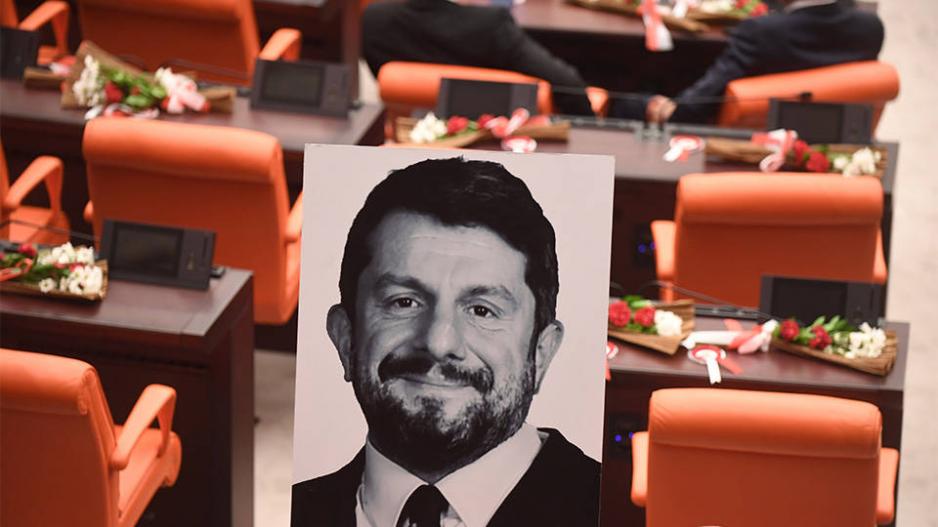The Istanbul 13th High Criminal Court has once again rejected the release of Can Atalay, a member of parliament for the Workers’ Party of Turkey (TİP), who was sentenced to 18 years in prison in the Gezi Park case. This decision comes after the Constitutional Court (AYM) issued a second violation of Atalay’s rights and sent the case to the Court of Cassation.
Can Atalay, elected as a member of parliament for Hatay in the May elections, had his release application denied by the Istanbul 13th High Criminal Court citing legislative immunity. Following an appeal to the Constitutional Court, which ruled a violation of rights and ordered Atalay’s release, the local court resisted the decision and sent the case to the Court of Cassation. The Constitutional Court ruled again on December 21 regarding the violation of rights, prompting renewed attention to the 13th High Criminal Court.
After the reasoned verdict was announced on December 27, the Istanbul 13th High Criminal Court did not release Can Atalay, sparking a waiting period in front of Çağlayan Courthouse. This situation adds to the ongoing discussions and concerns about a crisis in the Turkish judiciary.
Members of the Workers’ Party of Turkey initiated a protest in front of the Istanbul Courthouse in response to the Istanbul 13th High Criminal Court’s decision to defy the Constitutional Court’s ruling and not release Can Atalay, who was sentenced to 18 years in prison in the Gezi Park Trial.
In the evening, the Istanbul 13th High Criminal Court once again refused to comply with the Constitutional Court’s decision and opted not to release Atalay. Instead, the court decided to send the file to the 3rd Criminal Chamber of the Court of Cassation.
While awaiting the reasoned decision, the Constitutional Court provided the grounds for its violation decision on Can Atalay, stressing that the Istanbul 13th High Criminal Court violated the Constitution by neglecting to order his release. The Constitutional Court emphasized that judgments of rights violations in individual applications are not subject to review or supervision by any other authority. It stated that the Constitutional Court’s decision on the violation of Can Atalay’s right to individual application, the right to be elected and engage in political activity, as well as the right to personal liberty and security, were violated due to the non-implementation of the Constitutional Court’s decision.
The Court of Cassation has filed a criminal complaint against members of the Constitutional Court amid a legal conflict surrounding Can Atalay’s release. Atalay, elected as TİP Hatay MP in the May elections, applied for release after being convicted in the Gezi Trial. The Istanbul 13th High Criminal Court upheld his detention, and despite the Constitutional Court’s ruling in November of rights violations, the local court did not implement the decision. The Court of Appeals, which received the case, declared that the local court should not comply with the Constitutional Court’s decision and filed a criminal complaint against Constitutional Court members.
Can Atalay appealed to the Constitutional Court again, and on December 21, the Constitutional Court reiterated rights violations, explicitly ordering the Istanbul 13th High Criminal Court to release Atalay. All eyes were on the Istanbul court for the release decision, but it stated it would wait for the reasoned decision of the Constitutional Court before making an assessment for release.
Analyzing the process, the Constitutional Court emphasized that the continued detention of Atalay despite the violation rulings caused rights violations. It stated that the Constitutional Court’s rulings were not advisory but binding. The Constitutional Court also criticized the Istanbul 13th High Criminal Court, which sent the file to the Court of Cassation despite the first decision, stating that it did not fulfill its duty and violated the Constitution by sending the file to a court without duty and authority. The Constitutional Court argued that this method deprived Atalay of fair trial guarantees.
